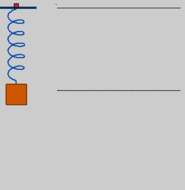Definify.com
Webster 1913 Edition
Resonance
Res′o-nance
(r?z′?-nans)
, Noun.
[Cf. F.
résonance
, L. resonantia
an echo.] 1.
The act of resounding; the quality or state of being resonant.
2.
(Acoustics)
A prolongation or increase of any sound, either by reflection, as in a cavern or apartment the walls of which are not distant enough to return a distinct echo, or by the production of vibrations in other bodies, as a sounding-board, or the bodies of musical instruments.
Pulmonary resonance
(Med.)
, the sound heard on percussing over the lungs.
– Vocal resonance
(Med.)
, the sound transmitted to the ear when auscultation is made while the patient is speaking.
Webster 1828 Edition
Resonance
RES'ONANCE
,Noun.
1.
A resounding; a sound returned from the sides of a hollow instrument of music; reverberated sound or sounds.2.
A sound returned.Definition 2026
resonance
resonance
See also: résonance
English
![]() resonance on Wikiversity.Wikiversity
resonance on Wikiversity.Wikiversity

Spring resonance animation.
Noun
resonance (countable and uncountable, plural resonances)
- The condition of being resonant.
- A resonant sound, echo, or reverberation, such as that produced by blowing over the top of a bottle.
- (medicine) The sound produced by a hollow body part such as the chest cavity upon auscultation, especially that produced while the patient is speaking.
- (figuratively) Something that evokes an association, or a strong emotion.
- (physics) The increase in the amplitude of an oscillation of a system under the influence of a periodic force whose frequency is close to that of the system's natural frequency.
- (nuclear physics) A short-lived subatomic particle or state of atomic excitation that results from the collision of atomic particles.
- 2004, When experiments with the first ‘atom-smashers’ took place in the 1950s to 1960s, many short-lived heavier siblings of the proton and neutron, known as ‘resonances’, were discovered. — Frank Close, Particle Physics: A Very Short Introduction (Oxford 2004, p. 35)
- An increase in the strength or duration of a musical tone produced by sympathetic vibration.
- (chemistry) The property of a compound that can be visualized as having two structures differing only in the distribution of electrons; mesomerism.
- (astronomy) A influence of the gravitational forces of one orbiting object on the orbit of another, causing periodic perturbations.
- (electronics) The condition where the inductive and capacitive reactances have equal magnitude.
Related terms
Translations
condition of being resonant
resonant sound
Old French
Etymology 1
Latin resonantia (“echo”), from resonō (“I resound”).
Noun
resonance f (oblique plural resonances, nominative singular resonance, nominative plural resonances)
Etymology 2
resoner (“to reason”) + -ance.
Noun
resonance f (oblique plural resonances, nominative singular resonance, nominative plural resonances)
- reason (logic, thinking behind an idea or concept)
References
- (fr) Godefroy, Frédéric, Dictionnaire de l'ancienne langue française et de tous ses dialectes du IXe au XVe siècle (1881) (resonance)